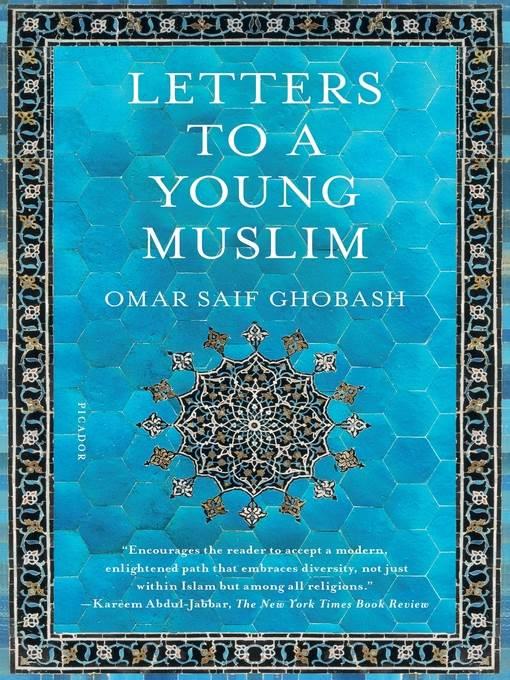
Letters to a Young Muslim
کتاب های مرتبط
- اطلاعات
- نقد و بررسی
- دیدگاه کاربران
نقد و بررسی

November 14, 2016
This deeply personal book of letters written from Ghobash to his two sons reveals what it is like to be a Muslim parent amidst the increasing ideological polarization of the “global war on terror.” Speaking from his own history of pain, loss, and trepidation, Ghobash, the United Arab Emirates ambassador to Russia, attempts to guide his children through the philosophical currents, impassioned conversations, and global context of terror, neo-imperialism, and the crisis of authority in the Islamic world. He advises his sons (and, by extension, other Muslim youth) to make decisions on how to harmonize their lives as faithful, peaceful Muslims in a tech-rich, pluralistic, and thoroughly modern world. Ghobash offers his compassionate and cultivated advice on the basics of Islamic history, the sheer diversity of its practice, and what to do when one faces Islamophobia or encounters violent radicalism in fellow Muslims. Above all, he instructs his children to take responsibility as individual Muslims and not to follow others on a path toward dichotomous thinking and violent reactions. He urges them to pursue a middle path that is simultaneously true to Islam and yet effectively and energetically engaged in the modern world. This is a fantastic book for Muslims and non-Muslims alike.

November 15, 2016
An appeal to critical thought and broad values for young Muslims.Ghobash, ambassador of the United Arab Emirates to Russia, presents a series of open letters crafted for his young sons as they grow up Muslim in the modern world. The author has a unique background: his mother is Russian, and his father was Arab. Moreover, his father was assassinated when a supporter of the Palestinian cause mistook him for another man who was a political target. The author was a young boy at the time of his father's death, and he has spent a lifetime reflecting on what senseless violence did to him and his family. He has written these letters to his own sons--born in 2000 and 2004--in order to provide them with written accounts of his own values and thoughts on Islam. Throughout, he asks them to consider varying points of view, do their own research, and make up their own minds. Ghobash seems most intent on convincing his sons to think for themselves rather than to allow clerics, scholars, and activists to influence their thinking. The author states unequivocally "Islam is a religion of peace," and then spends an entire chapter discussing what that statement really means, given the reality of violence in the world. He urges his sons to "see the world through the prism of responsibility," as he himself does, doing what is right and caring for the needs of others. "We need to take responsibility for the Islam of peace," he concludes. Ghobash takes largely liberal views on many issues, such as the role of women in society. He seems interestingly reticent on proclaiming strong views about the leadership and direction of Islam or passing anything but the most general judgment upon extremists. Laced with Western pluralism and liberalism, the author tries to push back the rigid moralism of Islam as he has often known it. Certainly heartfelt, the book is also reserved and largely unemotional.
COPYRIGHT(2016) Kirkus Reviews, ALL RIGHTS RESERVED.

November 15, 2016
This collection of 27 essays is written as letters from a father to his sons (only the first is addressed to both sons). In them, various facets of living as a Muslim are discussed. Each letter typically starts with a position, takes it to its logical extreme, highlights the flaws of that position, and finally provides a more moderate solution. Some of the letters are more personal and draw from particular life experiences. The argumentative style encourages one to challenge one's beliefs and examine one's faith more closely. Individual lifeno matter which human lifeis valued, reason and dialogue (rather than dogma and violence) are encouraged, and differences in opinion (and religious beliefs) are tolerated; humans are regarded as fellow humans. Readers who embrace Western values and Muslim ideals will likely find the ideas presented in this work to be resonant. Especially recommended for those interested in justifying a moderate Muslim stance within the context of traditional Muslim culture and beliefs.(Reprinted with permission of Booklist, copyright 2016, American Library Association.)

August 1, 2016
Born to an Arab father and a Russian mother in the United Arab Emirates (UAE) and the UAE's ambassador to Russia, Ghobash considers how moderate Muslims can be true to their faith while engaging in the modern world.
Copyright 2016 Library Journal, LLC Used with permission.

November 15, 2016
How does a father pass on to his two sons the essential elements of moderate Islam? Ghobash (ambassador of the United Arab Emirates to Russia) does so through a number of letters addressing particular subjects relating to the faith. The author is concerned that his sons understand that genuine Islam is a religion of peace and openness; one that engages with people from different political, religious, and cultural backgrounds. He stresses that radical Islam, with its hatred of the West and its embrace of violence, does not represent the true character of Islamic teachings and practice. To readers who are outside observers of these messages delivered through letters, Ghobash provides a perspective on the religion that has not received much attention in American media in the last couple of decades. He also gives a vision of a possible future where moderate Islam is dominant and is a positive force in the world. VERDICT A useful work for anyone who has an interest in Islam as well as college students writing on the religion in general or its social and political elements. --John Jaeger, Dallas Baptist Univ. Lib.
Copyright 2016 Library Journal, LLC Used with permission.

























دیدگاه کاربران